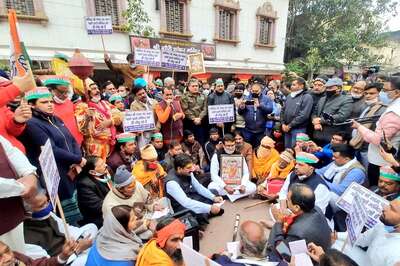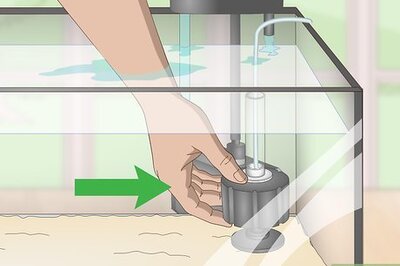
views
Tokyo: Foreigners held in a Japanese immigration detention centre have launched a hunger strike over the death of a detainee, drawing fresh attention to conditions under which they are held.
An Indian man died in an apparent suicide on Friday at the East Japan Immigration Centre, northwest of Tokyo. Activists have said the man killed himself a day after being denied release.
Detainees began refusing food on Sunday, with the strike since spreading to an unspecified number of inmates, Daisuke Akinaga, a spokesman for the centre, said. He cited the Indian's death, long-term detention and inmates' inability to win temporary release as reasons for the protest.
The death was the 14th at a Japanese immigration detention centre since 2006, a toll that has led to wide criticism over standards of medical care, the monitoring of detainees held in solitary and guards' responses to medical emergencies.
Immigration remains a prickly subject in Japan, where cultural and ethnic homogeneity remain deeply rooted even as the population shrinks and companies grapple with the worst labour shortages for more than four decades.
Majid Seyed Nejat, an Iranian taking part in the protest, told Reuters by phone that 19 detainees held in the same block as the Indian launched the hunger strike to pressure the authorities to address complaints.
"We want to know what responsibility they will take for the death," he said.
Mitsuru Miyasako, an activist who works with immigrants and foreign detainees, said inmates in five separate blocks at the centre had since joined the strike. The number of refusing food was unclear but was likely to exceed 100, he added.
Detainees last month submitted a petition requesting an end to long-term detention, citing cases where inmates have been held for over two years, Miyasako said. A spokesman for the centre declined to comment on individual letters.
Conditions in Japan's immigration detention system have sparked hunger strikes at other facilities. At their peak, protests at detention centres in Tokyo and Nagoya last year saw around 100 inmates refusing food.
Japan's 17 immigration detention facilities held 1,317 people as of Friday. Kazuyuki Tokui, a Justice Ministry official overseeing immigration detention, said the ministry did not recognise any problems at the centres.




















Comments
0 comment